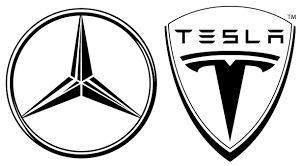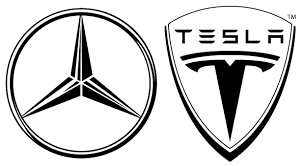
German luxury car maker Mercedes-Benz claimed that it has developed a self driving system similar to the new Full Self Driving software being touted by Tesla to be of a cutting-edge nature, but has not mentioned anything about allowing members of the public to use the technology on public roads.
A step-by-step approach to releasing new technology in self driving is being taken by the German auto companies, who are considered to be pioneers in the development of advanced driver assistance systems (ADAS), as the companies take time to allow their own engineers to validate the efficiency and safety of the system instead of asking the public to provide valediction of the systems.
However the aim of both the approaches – one that is radical while the other is a conservative one, is to provide impetus to put on public roads their highly automated driving systems. The companies claim that the systems would be widely useful in reducing the number of accidents on roads because faster accident-avoidance reflexes than humans exists withy computers.
Steering, braking and acceleration support in limited situations, generally on highways, can be provided by advanced driver assistance systems. However car manufacturers have stopped short of depending or deploying this technology to allow cars to self-navigate urban inner-city traffic.
But last week, this tradition in the car industry was broken by Tesla after the United States based electric car maker unveiled its FSD software and allowed the computer-powered cars of the company to get practice to sharpen their reflexes in inner-city traffic situations. The company however also issued a waning that that its cars "May Do the Wrong Thing at the Worst Time."
In contrast, the German car maker Mercedes has followed a principle of not allowing members of the general public to test out systems that are still in the experimental stages. The company said that in order for the company’s engineers to become test drivers, they have to pass an eligibility exam while the copany has another exam to allow engineers to test drive automated driving systems.
The German car maker wants its cars and technologies to be validated by its engineers so that they remain predictable for owners instead of forcing its customers to put faith and dependency on processors, software and the ability of machines to learn over time.
"We do not want blind trust. We want informed trust in the car. The customer needs to know exactly what the car can and cannot do," a Mercedes spokesman told Reuters on the sidelines of the carmaker's test track in Immendingen, Germany.
"The worst thing would be if the car gets into a complex situation and there was ambiguity over whether the car is in control or not," he said.
This is the reason that emphasis on its decades-old experience of automated driver assistance systems is being laid by the Stuttgart-based carmaker, owned by Daimler AG, as the company seeks to get regulatory approval globally for its own Drive Pilot system which it claims is a level 3 of automated driving.
(Source:www.ht.com)
A step-by-step approach to releasing new technology in self driving is being taken by the German auto companies, who are considered to be pioneers in the development of advanced driver assistance systems (ADAS), as the companies take time to allow their own engineers to validate the efficiency and safety of the system instead of asking the public to provide valediction of the systems.
However the aim of both the approaches – one that is radical while the other is a conservative one, is to provide impetus to put on public roads their highly automated driving systems. The companies claim that the systems would be widely useful in reducing the number of accidents on roads because faster accident-avoidance reflexes than humans exists withy computers.
Steering, braking and acceleration support in limited situations, generally on highways, can be provided by advanced driver assistance systems. However car manufacturers have stopped short of depending or deploying this technology to allow cars to self-navigate urban inner-city traffic.
But last week, this tradition in the car industry was broken by Tesla after the United States based electric car maker unveiled its FSD software and allowed the computer-powered cars of the company to get practice to sharpen their reflexes in inner-city traffic situations. The company however also issued a waning that that its cars "May Do the Wrong Thing at the Worst Time."
In contrast, the German car maker Mercedes has followed a principle of not allowing members of the general public to test out systems that are still in the experimental stages. The company said that in order for the company’s engineers to become test drivers, they have to pass an eligibility exam while the copany has another exam to allow engineers to test drive automated driving systems.
The German car maker wants its cars and technologies to be validated by its engineers so that they remain predictable for owners instead of forcing its customers to put faith and dependency on processors, software and the ability of machines to learn over time.
"We do not want blind trust. We want informed trust in the car. The customer needs to know exactly what the car can and cannot do," a Mercedes spokesman told Reuters on the sidelines of the carmaker's test track in Immendingen, Germany.
"The worst thing would be if the car gets into a complex situation and there was ambiguity over whether the car is in control or not," he said.
This is the reason that emphasis on its decades-old experience of automated driver assistance systems is being laid by the Stuttgart-based carmaker, owned by Daimler AG, as the company seeks to get regulatory approval globally for its own Drive Pilot system which it claims is a level 3 of automated driving.
(Source:www.ht.com)














